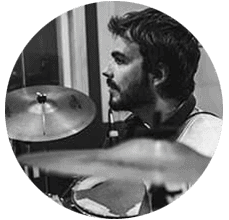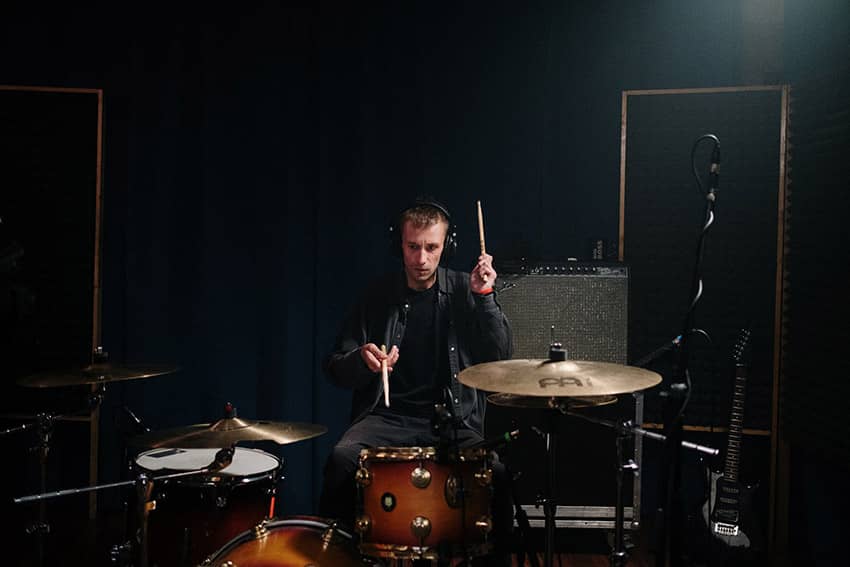Why do drummers use in-ear monitors?
In-ear monitors (IEMs) are preferred by many drummers for their compact size, comfort, and the clarity they offer. Unlike traditional headphones, IEMs fit snugly into the ear canal, isolating ambient noise.
This allows drummers to hear a precise mix of the band’s performance, including their own drums, without the interference of external sounds. Furthermore, IEMs give drummers mobility on stage without being encumbered by larger headphones.
What do drummers listen to when playing?
Drummers typically listen to a mix that includes all the instruments and vocals of the band, adjusted to their preference. This mix can emphasize certain elements, like the bass guitar or lead vocals, based on the drummer’s needs.
Additionally, drummers may listen to a click track (a metronomic beat) to maintain consistent timing. In some cases, drummers also play along with backing tracks or receive onstage instructions through their headphones or IEMs.
Do most drummers have hearing loss?
While not all drummers experience hearing loss, prolonged exposure to loud music without proper ear protection can lead to hearing damage over time.
Drums, being naturally loud instruments, pose a risk, especially when played in confined spaces or with amplified instruments.
Many professional drummers prioritize ear protection, using earplugs, headphones, or IEMs to reduce the risk of hearing damage.
Should drummers use noise-cancelling headphones?
Noise-cancelling headphones can be beneficial for drummers, especially during recording sessions or when playing along with backing tracks, as they minimize ambient noise.
However, active noise-cancelling headphones, which use technology to counteract external sounds, might not be ideal for all drumming situations. They can sometimes introduce a slight delay or alter the natural sound of the drums. Passive noise isolation, as offered by many studio headphones or IEMs, might be more suitable for drummers, providing a truer representation of the drum sound while still offering protection from excessive volume.

